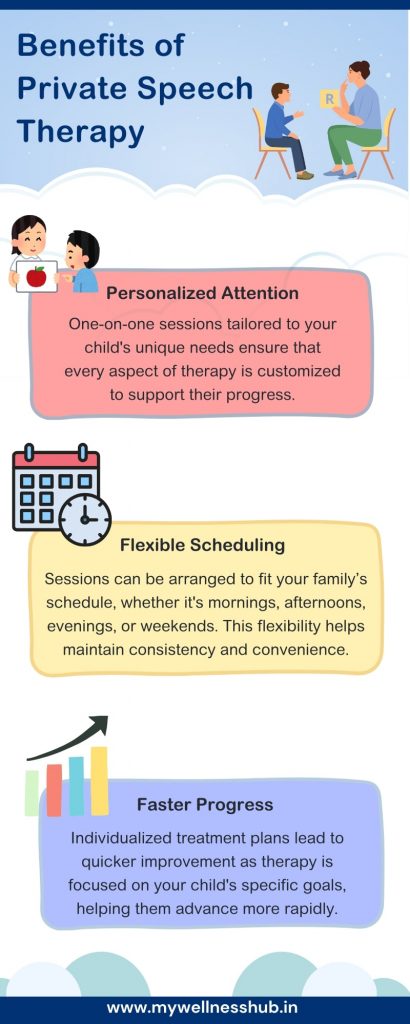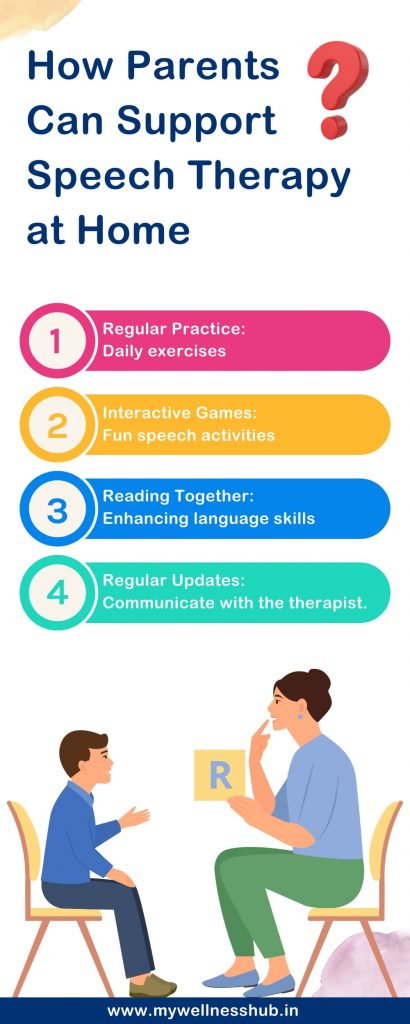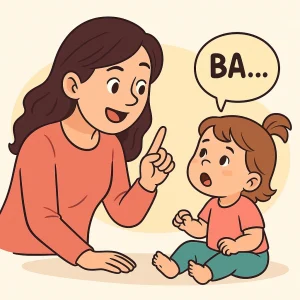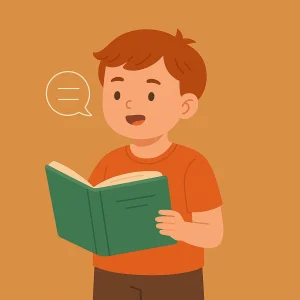Why Private Speech Therapy is Great for Your Child
Last Updated: September 14, 2024
Private speech therapy offers a tailored approach that can make a significant difference in your child’s ability to communicate and express themselves effectively. By focusing specifically on your child’s individual needs, private speech therapy creates a supportive and engaging environment where every session is designed to harness and enhance their unique strengths. Discover why opting for private speech therapy could be one of the best decisions you make for your child’s development and confidence.
Read More: Private Speech Therapy: Unlocking Your Child’s Speech Potential

Why Private Speech Therapy?
Private speech therapy offers a personalized approach that is crucial for effective speech development in children. Here’s a detailed look at why choosing private speech therapy can be highly beneficial:
Tailored Treatment Plans
- Personalized Attention: Private therapy focuses on your child’s unique needs, allowing for targeted interventions.
- Specific Strategies: Tailored strategies address particular areas of concern, enhancing the effectiveness of each session.
- Goal-Oriented: The therapist sets specific, achievable goals based on your child’s developmental level and needs.
Flexible Scheduling and Environment
- Convenient Timing: Schedule sessions at times that suit your family’s routine, reducing stress and enhancing participation.
- Comfortable Settings: Conduct therapy in environments where your child feels most comfortable, such as home or a familiar clinic.
- Adaptability: The ability to choose in-person or online sessions to best suit your child’s and family’s needs.
Faster Progress
- One-on-One Focus: Individual attention ensures that therapists can immediately address and correct challenges as they appear.
- Custom Adjustments: The therapist can dynamically alter methods and techniques to best suit the child’s learning pace.
- Immediate Feedback: Direct feedback from the therapist helps in making quicker adjustments and achieving faster improvements.
Comprehensive Parental Involvement
- Direct Communication: Regular updates and feedback from the therapist help parents understand their child’s progress.
- Home Strategies: Therapists provide specific techniques and exercises for parents to use at home, reinforcing therapy goals.
- Empowerment: Parents receive the tools and knowledge necessary to be proactive in their child’s developmental journey.
Consistent Support and Reinforcement
- Confidence Building: Ongoing support helps children build confidence in their communication abilities.
- Regular Sessions: Consistent therapy sessions help maintain progress and prevent regression in skills.
- Custom Learning Pace: Therapy is adjusted to match the child’s learning speed, ensuring optimal engagement and retention.
One-on-One Attention
One of the standout benefits of private speech therapy is the individualized attention your child receives. In private speech therapy, your child works directly with a speech therapist who tailors each session to their specific needs and preferences. This personalized approach ensures that every activity and exercise is designed to target your child’s unique communication challenges.
1. Personalized vs. Group Sessions
In contrast, group sessions in schools often involve multiple children working on different goals simultaneously. Imagine a 30-minute session with three other children; the therapist must divide their attention, and your child may not receive the focused practice they need. This division can slow down progress, as it’s difficult to address each child’s specific needs thoroughly in a group setting.
2. Faster Progress with Focused Sessions
In private speech therapy, the entire session is dedicated to your child. This one-on-one attention allows the therapist to continuously assess and adjust the treatment plan based on your child’s progress. The result is often faster improvement in speech and language skills. Personalized sessions mean your child can advance at their own pace without being held back or rushed through a generic program.
Private vs. School-Based Speech Therapy
| Feature | Private Speech Therapy | School-Based Therapy |
|---|---|---|
| Session Type | One-on-one sessions with the therapist, ensuring personalized attention to the child’s specific needs. | Group sessions with multiple children, leading to divided attention from the therapist. |
| Customization | Highly customized therapy plans tailored to the individual needs and progress of the child. | Standardized therapy plans that are often less personalized due to the larger group setting. |
| Scheduling Flexibility | High flexibility in scheduling sessions, accommodating the family’s availability and preferences. | Low flexibility with fixed schedules, often during school hours, which may not suit all families. |
| Parent Involvement | High level of parent involvement with opportunities to attend sessions, receive regular updates, and practice at home. | Limited parent involvement, usually restricted to periodic meetings or reports. |
| Progress Speed | Faster progress due to focused, individualized attention and tailored therapy techniques. | Slower progress as the therapist’s attention is divided among multiple children, reducing individualized practice time. |
| Communication with Therapist | Regular updates and feedback after each session, allowing parents to stay informed and involved in their child’s progress. | Less frequent communication, often limited to scheduled meetings or annual reports. |
Parent and Caregiver Involvement

In private speech therapy, parent and caregiver involvement is crucial for your child’s success. When parents actively participate in the therapy process, children tend to make faster and more lasting progress.
1. Active Involvement in Sessions
Private speech therapy provides numerous opportunities for parents to get involved. Unlike school-based therapy, which might limit parent communication to occasional meetings, private therapy promotes regular interactions between parents and the therapist. You can attend sessions, observe the techniques used, and learn how to support your child’s practice at home.
2. Practicing at Home
The role of parents doesn’t end when the therapy session is over. Practicing speech and language skills at home is vital for reinforcing what your child learns during sessions. Therapists will provide you with specific exercises and activities that you can do with your child to help them progress more quickly. This ongoing practice ensures that your child is continually working on their communication skills in a supportive environment.
Benefits of Regular Updates and Communication
Regular updates from your child’s therapist keep you informed about their progress. In private speech therapy, therapists typically provide feedback after each session, sharing what was covered and offering tips on what to focus on at home. This continuous communication helps you stay engaged and ensures that you can support your child’s development effectively.
1. Flexibility and Convenience
One of the key advantages of private speech therapy is the flexibility it offers. Unlike school-based therapy, which has fixed and often inconvenient sessions, private speech therapy lets you schedule sessions at times that work best for your family. This flexibility ensures that therapy can seamlessly integrate into your busy life.
2. Flexible Scheduling
Private speech therapy sessions can be scheduled to accommodate your child’s school hours, extracurricular activities, and family commitments. Whether you need sessions in the morning, after school, or on weekends, private therapists can often adjust their schedules to meet your needs. This flexibility helps maintain consistency in therapy, which is crucial for your child’s progress.
3. Convenience of Online Speech Therapy
In addition to flexible scheduling, online speech therapy provides unparalleled convenience. With virtual sessions, your child can receive therapy from the comfort of your home, eliminating the need for travel and reducing the time commitment for busy families. Online therapy is conducted through video conferencing platforms, making it easy to fit into your day without disrupting your routine.
4. Better Fit for Busy Schedules
The combination of flexible scheduling and the option for online sessions makes private speech therapy a perfect fit for busy families. You can choose the timing and format that best suit your needs, ensuring that your child receives consistent and effective support. This adaptability can lead to better engagement and faster progress in therapy.
Customized Treatment Plans
One of the most significant advantages of private speech therapy is the ability to create truly individualized treatment plans. Unlike standardized approaches often used in group settings, private speech therapy focuses entirely on your child’s specific needs.
1. Individualized Attention
In private speech therapy, the therapist tailors every aspect of the treatment plan to your child’s unique requirements. The speech therapist conducts a thorough evaluation to identify your child’s strengths and areas that need improvement. Based on this assessment, the therapist develops a customized plan targeting the specific challenges your child faces.
2. Flexibility to Update Goals
Another benefit of private speech therapy is the flexibility to update goals and strategies as needed. There’s no red tape or lengthy approval processes to navigate. If your child progresses quickly in one area, the therapist can immediately adjust the treatment plan to introduce new goals. Conversely, if your child needs more time on a particular skill, the plan can be adapted to provide additional support.
3. Faster Progress
The tailored approach of private speech therapy often leads to faster progress. Since the therapy is designed around your child’s individual needs, the interventions are more effective. The therapist can use techniques and activities that resonate with your child, making the sessions more engaging and productive. This focused attention helps your child achieve their communication goals more quickly.
Choosing the Right Speech Therapist
Choosing the right speech therapist for your child is a crucial step in ensuring they receive the best possible care. Here are some tips to help you make an informed decision.
1. Look for Licensed and Experienced Professionals
First and foremost, ensure that the speech therapist is licensed and has the necessary qualifications. In many regions, speech therapists must be certified by relevant professional bodies. For example, in the United States, look for certification from the American Speech-Language-Hearing Association (ASHA). This certification ensures that the therapist has met rigorous professional standards.
Experience is another critical factor. Therapists who have worked with children and have specific experience in addressing your child’s particular challenges are often better equipped to provide effective treatment. Don’t hesitate to ask potential therapists about their experience and areas of specialization.
2. Find a Good Fit for Your Child’s Needs
Every child is unique, and finding a therapist who is a good fit for your child’s personality and needs is essential. Look for a therapist who can build a rapport with your child and make them feel comfortable. This connection is vital for successful therapy sessions.
It’s also important to consider the therapist’s approach and methods. Some therapists may use play-based techniques, while others might focus on structured exercises. Discuss these methods with potential therapists to ensure they align with what you believe will work best for your child.
3. Tips for Selecting the Best Therapist
- Research and Recommendations: Start by researching local speech therapists and asking for recommendations from healthcare providers, teachers, or other parents. Online reviews can also provide valuable insights.
- Initial Consultation: Many therapists offer an initial consultation. Use this opportunity to ask questions, observe how the therapist interacts with your child, and assess whether they are a good fit.
- Ask About Progress Tracking: Inquire about how the therapist tracks progress and communicates updates. Regular feedback is essential for you to stay informed and involved in your child’s therapy journey.
Potential Drawbacks and Solutions
While private speech therapy offers many benefits, it’s important to acknowledge and address some potential drawbacks. Understanding these challenges and exploring solutions can help you make an informed decision for your child’s therapy needs.
1. Higher Cost of Private Speech Therapy
One significant drawback of private speech therapy is the cost. Private sessions can be more expensive compared to school-based or group therapy options. However, there are ways to manage these costs effectively:
- Insurance Coverage: Check if your health insurance plan covers speech therapy services. Some insurance plans provide partial or full coverage for speech therapy, which can significantly reduce out-of-pocket expenses.
- Flexible Payment Plans: Many private speech therapy providers, including Wellness Hub, offer flexible payment plans to make therapy more affordable. Discuss payment options with your therapist to find a plan that suits your budget.
- Financial Assistance Programs: Look for local or national programs that offer financial assistance for speech therapy. Some organizations provide grants or scholarships to help families cover therapy costs.
2. Lack of Access to School Teams
Another potential drawback is the lack of access to school teams and educational resources. School-based therapy often involves collaboration with teachers and integration with the school curriculum. However, private therapists can still work closely with educators to ensure a cohesive approach:
- Collaboration with Schools: Private speech therapists can communicate with your child’s teachers to align therapy goals with educational needs. This collaboration ensures that your child receives consistent support across different environments.
- Regular Updates: Keep your child’s teachers informed about their progress in private therapy. Regular updates and sharing of therapy plans can help teachers incorporate relevant strategies into the classroom.
3. Solutions for Families Concerned About Cost
If the cost of private speech therapy is a concern, consider these alternatives and solutions:
- Group Sessions: Some private therapists offer group sessions at a lower cost. While not as individualized, group therapy can still provide valuable support and practice opportunities.
- Community Resources: Explore community-based programs and resources. Some nonprofit organizations and community centers offer affordable or sliding-scale speech therapy services.
- Teletherapy: Online speech therapy can sometimes be more cost-effective than in-person sessions. It also offers the convenience of receiving therapy from home, which can save on travel expenses and time.
Conclusion
Choosing the right private speech therapy for your child can lead to remarkable improvements in communication. At Wellness Hub, we provide personalized care with one-on-one attention, crafting treatment plans that cater uniquely to your child’s needs. Our flexible scheduling and active involvement of parents accelerate progress, while options for insurance and flexible payment plans make services more accessible. Additionally, our therapists collaborate with educators to ensure comprehensive support. Opting for private therapy with licensed professionals at Wellness Hub means investing in your child’s ability to overcome communication challenges and succeed. Discover the benefits on our Speech Therapy Services page and take a step toward enhanced communication for your child.
Frequently Asked Questions:
1. What are the benefits of private speech therapy for my child?
Private speech therapy offers several benefits, including personalized one-on-one attention, customized treatment plans, flexibility in scheduling, and active parent involvement. These factors often lead to faster progress and more effective therapy outcomes.
2. How does private speech therapy differ from school-based therapy?
In private speech therapy, sessions are tailored specifically to your child’s needs and conducted one-on-one with a therapist. This is different from school-based therapy, which often involves group sessions with less individualized attention.
3. Is private speech therapy more effective than group therapy?
Private speech therapy can be more effective for some children because it provides focused, individualized attention. The therapist can tailor activities and strategies to your child’s specific needs, leading to quicker and more significant progress.
4. How can I afford private speech therapy?
To manage the cost of private speech therapy, you can explore insurance options, flexible payment plans, and financial assistance programs. Some private therapy providers offer group sessions at a lower cost, and teletherapy can also be a more affordable option.
5. How do I choose the right speech therapist for my child?
When choosing a speech therapist, look for licensed and experienced professionals who have worked with children and understand your child’s specific needs. It’s important to find a therapist who can build a rapport with your child and use methods that resonate with them.
6. Can private speech therapists collaborate with my child’s school?
Yes, private speech therapists can collaborate with your child’s school educators to ensure a cohesive approach to your child’s therapy. Regular communication between the therapist and teachers can help align therapy goals with educational needs.
7. What should I expect during the first private speech therapy session?
During the first session, the therapist will conduct a thorough evaluation of your child’s communication skills. This assessment helps in creating a customized treatment plan tailored to your child’s specific needs.
8. How often should my child attend private speech therapy sessions?
The frequency of therapy sessions depends on your child’s individual needs and progress. Typically, sessions are held once or twice a week, but your therapist will recommend a schedule that best supports your child’s development.
9. Can online speech therapy be as effective as in-person sessions?
Yes, online speech therapy can be just as effective as in-person sessions. It offers the convenience of receiving therapy from home and can be a good option for families with busy schedules or limited access to local therapy services.
10. How can I support my child’s progress in speech therapy?
Parents play a crucial role in supporting their child’s progress. Actively participating in sessions, practicing at home, and maintaining regular communication with the therapist are key ways to help your child succeed in speech therapy.
About the Author:
Anuradha Karanam
Speech-language pathologist (7+ years of experience)
Anuradha Karanam is a skilled speech-language pathologist with over 6 years of experience. Fluent in Tamil, Telugu, Hindi, and English, she specializes in parent counseling, speech sound disorders, fluency assessment, and speech-language evaluations. Anuradha excels at working with children with developmental disorders, offering creative and effective therapy programs. Currently, at Wellness Hub, she holds a BASLP degree and is registered with the RCI (CRR No A85500). Her patience, ambition, and dedication make her a trusted expert in her field.
Book your Free Consultation Today
Parent/Caregiver Info:
Client’s Details:
* Error Message









